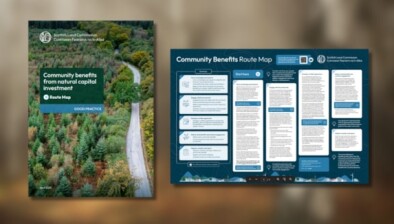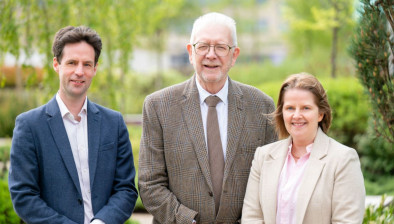‘Wellbeing’ central to assessing business case for developing vacant or derelict land

Guidance published this week by the Scottish Land Commission argues that wellbeing should be a central consideration when assessing the business case for developing vacant or derelict land.
There are an estimated 11,000 hectares of such land nationally and much of it sits in areas with the greatest poverty and deprivation.
The commission contends that using a different framework to assess the potential impact of bringing sites back into use that takes account of wider social, environmental and community benefits is crucial to changing Scotland’s approach to land reuse.
Shona Glenn, head of policy and research at the Scottish Land Commission, said: “This is not all about private ownership and profit. Forty per cent of land on the vacant and derelict land register is owned by the public sector. In urban areas particularly, fixing dereliction could play a major role in addressing health inequalities and improving wellbeing.
“Bringing derelict urban sites back into use could help us provide new homes, space for growing food in towns and cities, greenspaces for people to enjoy the outdoors and an opportunity to improve biodiversity in urban areas. Some sites may even have the potential to generate renewable energy.
“We think the time has come to update and develop the traditional approaches to assessing the benefits of reusing land to reflect the broader perspective on economic wellbeing and properly reflect the way our environment affects every aspect of our lives.”
Louise Macdonnell, chief executive of DTA Scotland, said: “DTA Scotland strongly agrees that vacant, abandoned and derelict land has a detrimental impact on the wellbeing of the community that surrounds it.
“Community-powered regeneration activity can create massive benefits for society, helping to improve health and wellbeing in some of our most vulnerable communities. This new guidance will make it easier for the wider benefits of this activity to be understood by decision makers.
“We look forward to working with the commission and piloting the guidance when our new Vacant and Derelict Land Project Officer takes up post later this month.”
Allan McQuade, director of place at Scottish Enterprise, added: “Scottish Enterprise is committed to growing the Scottish economy for the benefit of all. Rejuvenating vacant and derelict land brings about long term regeneration and renewal – unlocking growth, reviving communities, increasing community empowerment, reducing inequalities and inspiring local pride and activities.
“It is to everyone’s benefit if we embed a more strategic approach to tackling long-term land vacancy and dereliction by taking into account the wider social, environmental and community benefits.”














